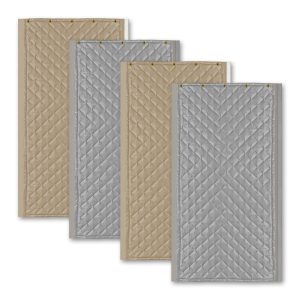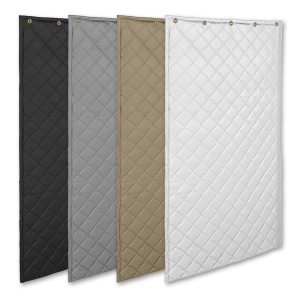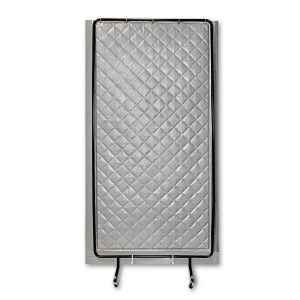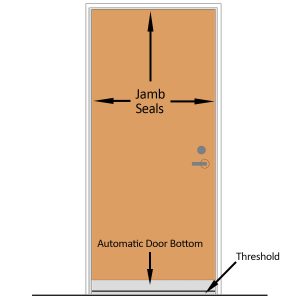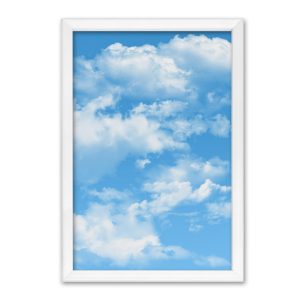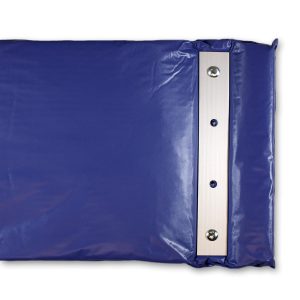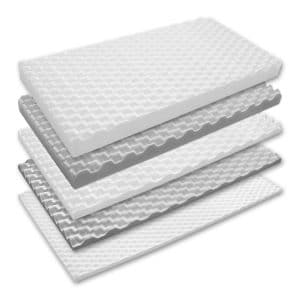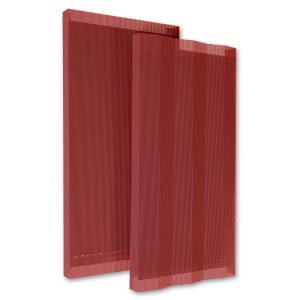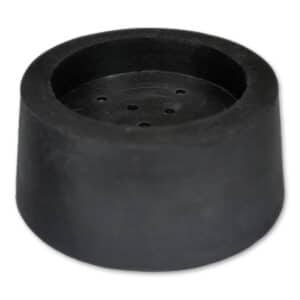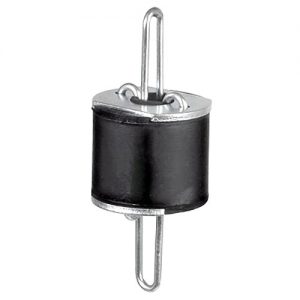Soundproofing industrial noise will help reduce occupational exposure to high sound levels to create a productive and safe working environment. Noise is a huge concern in factories and industrial facilities. It can create hazards in the workplace and affect your health. Industrial Facilities often need to meet specific noise level requirements as outlined by OSHA (Occupational Safety and Health Administration). Regardless of meeting regulations, reducing noise is the right thing to do. It improves the safety and well-being of the workers. There are many options to explore when acoustically treating a factory, manufacturing plant, or other industrial facility.
Enclose And Contain Sound
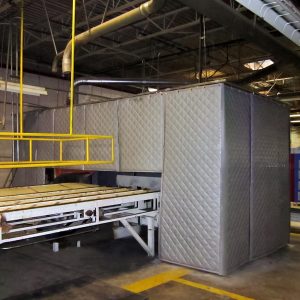
PrivacyShield® Absorptive Soundproofing Blankets were installed to create a sound enclosure around the equipment in this lumber processing plant.
We will begin with acoustical blanket enclosures. These highly-effective, custom-made sound enclosures can both absorb and block sound. They can enclose just about anything that makes noise and are available for interior, exterior, or high temperature applications. Similar in composition to the blanket enclosure is the PrivacyShield® Dual-Sided Absorptive Soundproofing Blanket . Usually used to create a temporary wall barrier, these barrier blankets combine absorption with a mass loaded sound barrier. They can be hung from the ceiling, attached to metal or wood frames, or attached to existing walls. PrivacyShield® Absorptive Soundproofing Blanket Partition provide an easy solution to set up temporary or semi-permanent enclosures around machines or work areas.
Wrap Noisy HVAC and Pipes
To quiet noisy pipes and duct work, consider using AudioSeal® Pipe and Duct Wrap. The wrap provides a quilted absorber layer to decouple the sound barrier from the surface of the pipe or ducting. If you already have a layer of material to decouple the barrier layer, AudioSeal® Duct and Pipe Lag may be utilized. Once the pipe or ducting has been wrapped, the edges may be secured using AudioSeal® Lag Tape.
Decrease the Reverberant Noise Level
Soundproofing industrial noise often requires reducing sound levels in open spaces. Factories and manufacturing planes need to address overall sound pressure within a room. Not all machinery can be completely enclosed. AlphaFlex® PVC Ceiling Banners or hanging baffles can be very effective in large room industrial applications. Hung from the ceiling, these sound absorbing materials are very effective in reducing sound. Their main function is to lower the reverberation and echo within a space. This prevents sound from amplifying back from the ceiling into the room. Lowering the reverberation time can contribute significantly to help reduce noise levels and sound pressure within a space.
Likewise, acoustical wall panels are another type of product that reduce sound reflections and prevent sound from amplifying in a room. Metal wall panels provide abuse resistance in harsh industrial conditions. Thick acoustic foam, glued to the walls around machinery, can also help lower noise levels. If you need sound absorbing panels that are moveable and wipe-able, consider AlphaSorb® Dual-Sided Absorptive Sound Blanket. They hang easily using the factory grommets at the top of the panel.
Decouple Machinery From The Room’s Structure
Finally, to reduce structure borne noise and vibration, we use isolation mounts and cup mounts. These mounts are efficient, easy to attach, and are a simple solution to install under the legs of vibrating machinery. Machinery without specific mounting points may benefit from the use of vibration isolation pads. If the machinery metal is simply resonating, a sound damping sheet or damping compound may be applied to the housing.
Desired Results
The objective of soundproofing industrial noise is to reduce prolonged exposure to high sound levels. This ensures a healthy and safe work environment. OSHA (Occupational Safety and Health Administration) regulates standards for acceptable noise levels in factories, manufacturing plants, and other industrial settings. During a typical eight-hour work day, continuous sound levels should remain below 90 dBa (A-weighted decibels).
Exposure to impulsive or impact noise should not exceed 140 dB peak sound pressure. Achieving these goals requires a combination of machine enclosures, general absorptive acoustic treatment and possibly hearing protection.
Featured Applications
To learn more about how Acoustical Solutions can solve your noise control problems, use our contact form, call one of our Acoustical Sales Consultants at (800) 782-5742, or visit us on the web at acousticalsolutions.com.
